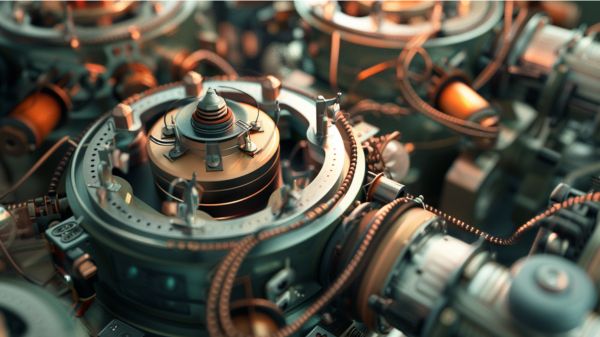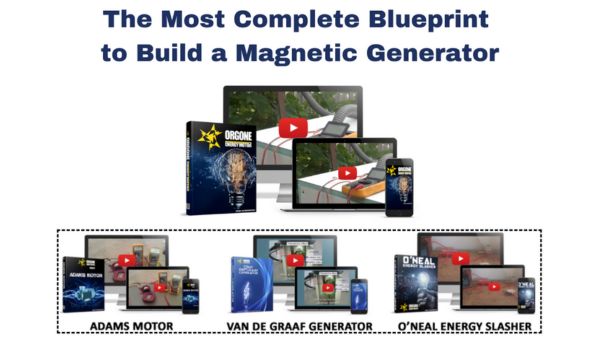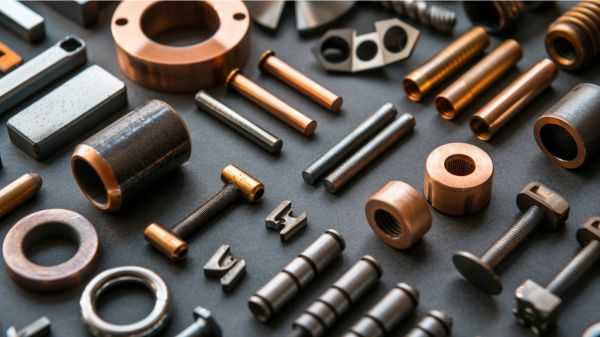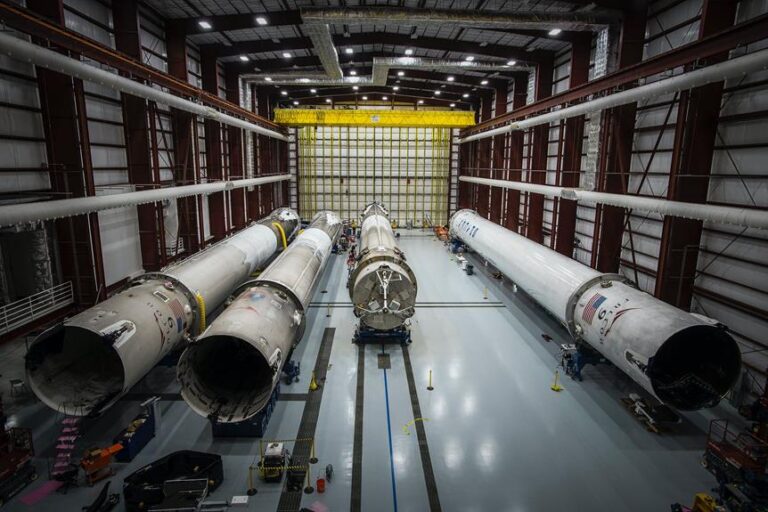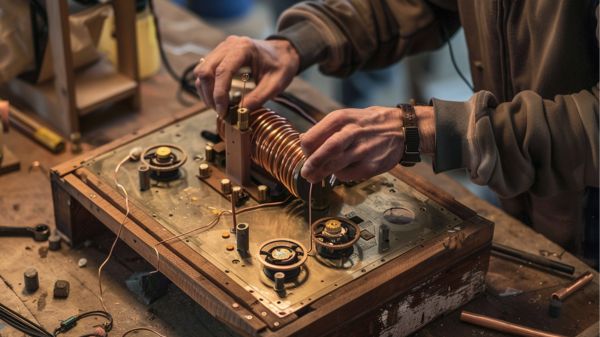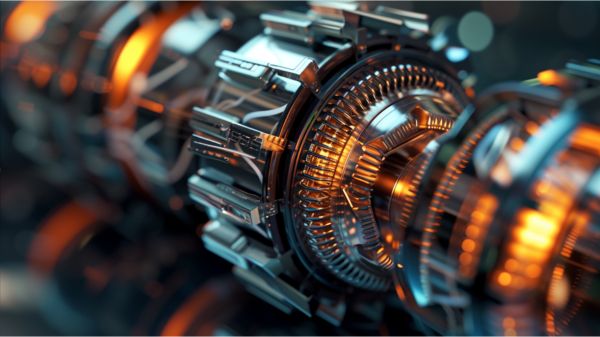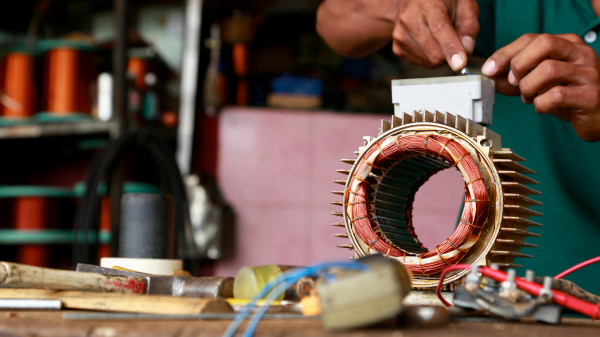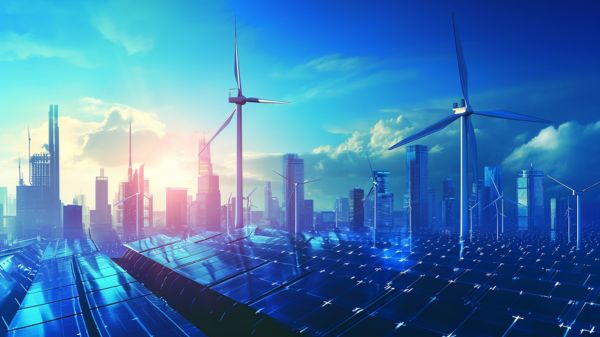What Makes a Generator Powered by Magnets Efficient?
So, you’re curious about what makes a generator powered by magnets so efficient? Well, let’s start by saying that it’s not just some magical force at work here. There are actually scientific principles behind it that contribute to its efficiency.
From the utilization of permanent magnets in the magnetic field to the innovative designs and materials used, there are several factors that play a role in making these generators highly efficient.
But I won’t give it all away just yet. If you want to uncover the secrets behind the efficiency of magnet-powered generators, you’ll have to keep reading.
Key Takeaways
- Interaction between magnetic fields and conductive coils generates electricity efficiently.
- Optimization of magnetic field strength and distribution enhances generator efficiency.
- Proper alignment of magnets and coils, along with high-quality magnets, maximizes efficiency.
- Implementation of efficient power electronics and control systems improves the overall efficiency of magnet-powered generators.
Principles of Magnetic Fields in Generators
In magnet-powered generators, the principles of magnetic fields play a crucial role in the generation of electricity. The interaction between magnetic fields and conductive coils is what allows these generators to produce electrical current.
The key to this process lies in the rotating magnetic field created by the permanent magnets in the rotor. As the rotor spins, the magnetic field passes through the coils, inducing voltage and generating electricity.
Unlike traditional generators that rely on an external energy source, magnet-powered generators harness the inherent power of magnetic fields to produce electricity. The use of permanent magnets in the rotor ensures a constant magnetic field, enhancing the efficiency and performance of these generators.
Understanding the dynamics of magnetic fields is essential for optimizing the efficiency of a generator powered by magnets and unlocking their full potential as a sustainable energy source.
Innovative Designs for Magnet-Powered Generators
Innovative designs for magnet-powered generators incorporate permanent magnets and field windings, aiming to enhance efficiency and power output while maintaining reliability. By combining these two elements, the magnetic field strength and distribution within the generator can be optimized. This optimization leads to increased power generation and improved energy efficiency.
These designs also focus on reducing the size of the generators without compromising their performance. Finite element analysis is used to validate the effectiveness of the design code for magnet-powered generators. The integration of permanent magnets and field windings offers a hybrid solution that improves overall generator performance.
These innovative designs revolutionize the traditional generator concept, providing a reliable and efficient power source that meets the demands of modern energy needs.
Factors Contributing to Generator Efficiency
To maximize the efficiency of magnet-powered generators, several key factors must be considered and optimized.
One crucial factor is the strength and configuration of the magnetic fields. Permanent-magnet generators utilize materials like neodymium-boron-iron or samarium-cobalt to achieve high magnetic flux density, resulting in efficient energy conversion.
Another factor is the choice of energy source. Renewable energy sources, such as wind or water, provide a sustainable and clean input for the generator, increasing overall efficiency.
Additionally, the design and construction of the generator play a significant role. Induction generators, for example, operate with minimal losses, contributing to their high efficiency in converting mechanical energy to electrical energy.
Moreover, magnet generators have been shown to achieve efficiency rates of up to 95%, making them a reliable and effective solution for generating high-quality electrical energy. By optimizing these factors, magnet-powered generators can achieve exceptional efficiency in harnessing renewable energy.
Advantages of Magnet-Powered Generators
One of the key advantages of magnet-powered generators is their exceptional efficiency in converting mechanical energy to electrical energy, reaching rates as high as 95%. This makes them a highly reliable and clean power source for your electrical needs.
Here are four reasons why magnet-powered generators are advantageous:
- Environmentally Friendly: These generators produce electricity without emitting harmful gases or pollutants, ensuring a sustainable and environmentally conscious energy solution.
- Low Maintenance: Magnet-powered generators have minimal maintenance requirements, allowing you to enjoy reliable power without the hassle of frequent upkeep.
- Independent Energy Source: These generators operate independently of external energy sources, providing a self-sustaining power solution that reduces your dependence on traditional energy grids.
- Long-Term Benefits: By reducing energy costs and carbon footprint, magnet-powered generators offer significant long-term benefits for homes and businesses, providing a sustainable and cost-effective energy solution.
Tips for Maximizing Efficiency in Magnet-Powered Generators
To maximize efficiency in magnet-powered generators, ensure proper alignment of magnets and coils. This alignment is crucial as it allows for optimal magnetic field interaction and energy conversion.
Additionally, using high-quality magnets like neodymium-boron-iron can enhance the magnetic flux density, resulting in better performance. Minimizing air-gap distances between magnets and coils is also important, as it reduces energy loss and improves overall efficiency.
Implementing efficient power electronics and control systems can further optimize the output voltage and increase efficiency. Regular maintenance and monitoring of magnet condition are essential to ensure sustained efficiency in generator operation.
Frequently Asked Questions
Are Magnetic Generators Efficient?
A generator powered by magnets can be efficient, with high conversion rates and minimal fuel consumption. Factors like maintenance requirements and continuous operation contribute to their efficiency. However, limitations and challenges in harnessing magnetic energy exist.
How Do Magnets Help Generators?
Magnets play a crucial role in generators by allowing for the manipulation of magnetic fields, inducing voltage in wire coils, increasing magnetic flux density, optimizing rotor design, and efficiently producing electrical current through energy conversion.
How Does the Strength of a Magnet Affect a Generator?
The strength of a magnet directly affects a generator’s power output. Stronger magnets create a more intense magnetic field, leading to higher magnetic flux density and increased efficiency. Magnet size and material properties also play a role in determining the overall generator performance.
What Are the Advantages of Permanent Magnet Generator?
Permanent magnet generators offer cost-effective power output, high durability, and environmental benefits. They require minimal maintenance and reduce noise. With no need for external energy sources, they are self-sustaining and efficient.
Conclusion
A generator powered by magnets offers an efficient and sustainable energy solution for various applications. With their simplicity, reliability, and high magnetic flux density, these generators can convert mechanical energy into electrical energy with high conversion rates.
One interesting statistic to visualize this efficiency is that magnet-powered generators can achieve a conversion efficiency of up to 95%, significantly higher than other types of generators. This highlights their potential to contribute to a greener and more energy-efficient future.
